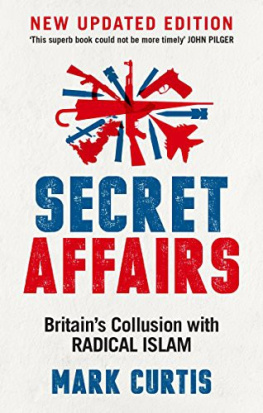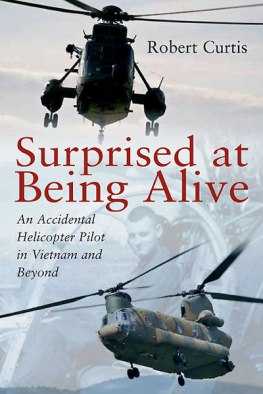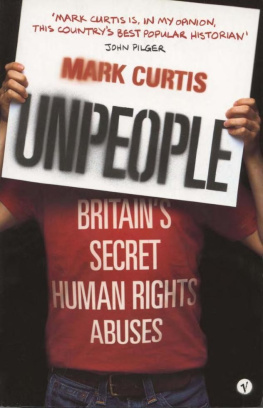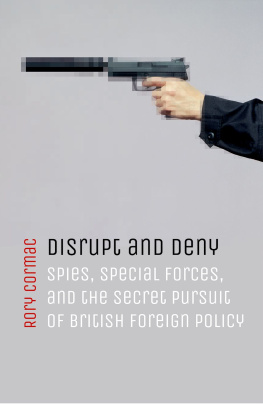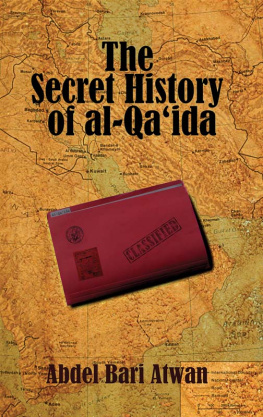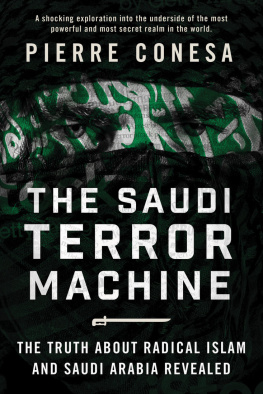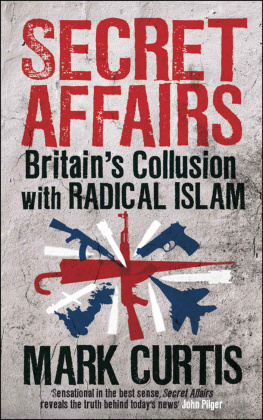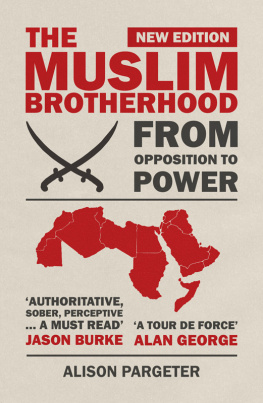Mark Curtis is an author, journalist and consultant, and specialist on British foreign policy, whose previous bestselling books include Web of Deceit and Unpeople. He is a former Research Fellow at the Royal Institute of International Affairs (Chatham House) and former Director of the World Development Movement. He has also worked in the field of international development for 25 years, including as Head of Policy at the international NGOs Christian Aid and ActionAid.
As much of history is appropriated by the media and we are beckoned into an era of endless war, this superb book could not be more timely. Sensational in the best sense, it examines the darkest corners of the imperial past to reveal the truth behind todays news John Pilger
This latest contribution to the remarkable record of post-World War II British foreign policy that Mark Curtis has been compiling presents often startling and deeply disturbing evidence about how, in an effort to preserve declining influence in the worlds oil-producing regions, the government has lent frequent and critical support to the states that have been the primary sponsors of radical Islam and the terrorism that it spawns, and even to the groups that have emerged. Unearthing this largely hidden history is a contribution of the highest significance, and could hardly be more timely Noam Chomsky
This valuable and important book by Mark Curtis, the result of painstaking and extensive research into declassified files on British policy towards the Islamic world over the last half century, presents a far more accurate and balanced picture than the shallow simplicities fed by Bushs so-called war on terror. It shows in extensive detail how Britain and the US have repeatedly sided with radical Islamic forces in the Middle East and elsewhere as counterweights to check the rise of nationalism, as shock troops to bring about pro-Western regime change, and as proxies to fight wars against the Wests enemies. There is no war between civilizations (Bush), no Manichaean struggle between the good and evil forces of Islam (Blair), rather the ever-present serpentine thread of shifting alliances to maintain British control of key energy resources and Britains place in a pro-Western global financial order centred on Saudi Arabia. This is a fascinating account which can change outlooks and deepen comprehension of a hugely misunderstood drama, and it should be compelling reading before any further Middle East wars are set in train Michael Meacher
Secret Affairs deserves to become a key reference point in the debate over terrorism and Middle East policy Metro
[Curtis has] done an excellent job with the sources available, assembling an impressive array of leaks and government admissions, to argue that, at least in ethical terms, UK foreign policy has changed little in recent decades compelling New Humanist
Remarkable Independent
A work of great importance and sobering conclusions Tribune
Enthralling, encyclopedic and damning Chartist
Gripping stuff Sunday Business Post
SECRET AFFAIRS
Britains Collusion with
RADICAL ISLAM
MARK CURTIS
NEW UPDATED EDITION

This updated edition published in 2018
First published in Great Britain in 2010 by Serpents Tail, an imprint of Profile Books Ltd
3 Holford Yard
Bevin Way
London
WC1X 9HD
www.serpentstail.com
Copyright 2010, 2012, 2018 Mark Curtis The moral right of the author has been asserted All rights reserved. Without limiting the rights under copyright reserved above, no part of this publication may be reproduced, stored or introduced into a retrieval system, or transmitted, in any form or by any means (electronic, mechanical, photocopying, recording or otherwise), without the prior written permission of both the copyright owner and the publisher of this book.
EISBN 978 1 78283 433 5
Special thanks to John Pilger, Tom Mills for excellent research assistance, my agent Veronique Baxter, numerous people at Serpents Tail, especially Pete Ayrton, Stephen Brough, Ruthie Petrie, Rebecca Gray, Valentina Zanca and Diana Broccardo. And, above all, to my wife, Florence.

Contents
Introduction
During the wars and recent upheavals in the Middle East, one important aspect of British policy has been little mentioned in the mainstream media: Britains collusion with radical Islamic actors to promote its foreign policy and commercial interests. Yet this policy has a long history, which this book will tell, and has contributed not only to the rise of radical Islam but also to that of international terrorism, including the threat from this now faced by the British public.
The July 2005 London bombings, which killed 52 people, constituted the first successful attack by Islamic extremists in Britain. But in May 2017, amidst dozens of attacks in Europe inspired by the jihadist group Islamic State, a British citizen of Libyan origin living in Manchester blew himself up at a pop concert at the Manchester Arena, killing 22 people. Two other gruesome attacks in London during the year killed another 12 people. The British authorities now claim they are pursuing around 600 active counter-terrorism investigations and that 19 attempted attacks were disrupted from 2013 until 2017. The EUs anti-terror chief, Gilles de Kerchove, warns that there are 20,000 to 35,000 radicals in Britain, of which 3,000 are worrying for MI5 and of those 500 are under constant and special attention.
Neither is this threat likely to disappear quickly: in late 2017, the senior UK counter-terrorism officer at Scotland Yard warned that the terror threat level will remain at severe for at least the next five years. Moreover, the former head of MI5, Jonathan Evans, has said the threat of Islamist terrorism is a generational problem that Britain may face for another 2030 years.
How we got to this point has been the subject of much speculation as to how home-grown British citizens can turn to terrorist violence and be prepared to blow themselves up. Right-wing commentators typically blame liberal culture, arguing that laws have not been tough enough to clamp down on extremism, or even that multi-culturalism has made it impossible to challenge people of a different faith. The government was widely attacked after 7/7 for failing to clamp down on a number of Islamist radicals in Britain most notoriously, Abu Hamza, the former preacher at the Finsbury Park Mosque in north London, who was allowed to openly encourage numerous young Muslims to espouse violent jihad.
For others, and many on the political left, the terrorist threat has been fuelled by British military interventions in Iraq, Afghanistan and Libya, its alliance with the United States and its siding with Israel in its conflict in occupied Palestine. These are surely major factors: in April 2005, for example, the Joint Intelligence Committee stated, in a report leaked the following year, that the Iraq conflict has exacerbated the threat from international terrorism and will continue to have an impact in the long term. It has reinforced the determination of terrorists who were already committed to attacking the West and motivated others who were not. This followed a joint Home Office/Foreign Office report, called Young Muslims and Extremism, which was also leaked and which stated that there was a perceived double standard among many Muslims in Britain who believe that British foreign policy, in places such as Iraq, Afghanistan, Kashmir and Chechnya is against Islam.
Next page
